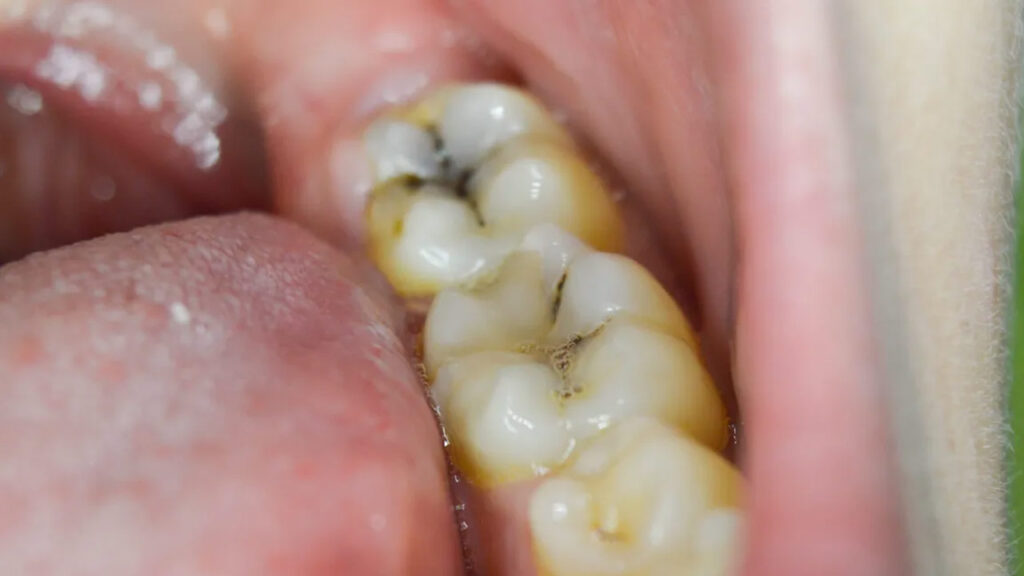Tooth decay is a common dental problem that affects people of all ages. It is caused by bacteria that produce acids that dissolve the tooth enamel and eventually lead to cavities. Oral health is important not just for our teeth and mouth, but also for our overall health and well-being. In this article, we will explore the organs that tooth decay affects and how it can impact our bodies.
What is tooth decay?

Tooth decay is a bacterial infection that affects the teeth. It is caused by the build-up of plaque, a sticky film of bacteria that forms on the teeth and gums. Plaque feeds on sugar and starches in the food we eat and produces acid that attacks the tooth enamel, eventually leading to cavities. Poor dental hygiene, a diet high in sugar and starches, and certain medical conditions can increase the risk of tooth decay.
Tooth decay progresses in stages, starting with the formation of a white spot on the tooth, followed by a brown or black spot, and eventually a cavity. If left untreated, tooth decay can lead to tooth loss and other health problems.
Symptoms of tooth decay include tooth sensitivity, pain when biting or chewing, visible holes or pits in the teeth, and discolouration.
What organs does tooth decay affect?
The mouth
Tooth decay primarily affects the mouth, specifically the teeth, gums, and jawbone. Cavities can cause pain and discomfort, making it difficult to eat and speak properly. Untreated cavities can lead to infections and abscesses, which can cause swelling, fever, and other complications.
The teeth
Tooth decay affects the structure and function of the teeth. Cavities can weaken the tooth structure and make it more prone to breakage or fracture. If left untreated, tooth decay can lead to tooth loss.
The gums
Tooth decay can also affect the gums, leading to gum disease. Gum disease is an inflammation of the gums that can cause redness, swelling, and bleeding. If left untreated, gum disease can lead to tooth loss and other health problems.
The jawbone
Tooth decay can also affect the jawbone, leading to bone loss and a weakening of the jawbone structure. This can cause problems with chewing and speaking and can also impact the overall appearance of the face.
Other organs
Tooth decay can also affect other organs in the body. Oral infections can spread to other parts of the body, leading to systemic infections. Chronic inflammation from gum disease has also been linked to a higher risk of heart disease, stroke, and other health problems.
How does tooth decay affect the body?
Oral infections
Untreated tooth decay can lead to oral infections, which can spread to other parts of the body. Bacteria from oral infections can enter the bloodstream and travel to other organs, leading to systemic infections.
Systemic infections
Systemic infections from oral bacteria can lead to serious health problems, including endocarditis, an infection of the heart’s lining, and pneumonia. Pregnant women with oral infections are also at a higher risk of premature delivery and low birth weight babies.
Chronic inflammation
Gum disease is an inflammatory condition that can lead to chronic inflammation throughout the body. Chronic inflammation has been linked to a higher risk of heart disease, stroke, and other health problems.
Compromised immune system
Oral infections from tooth decay can also compromise the immune system, making it more difficult for the body to fight off infections and diseases.
healthcareDental health is an important aspect of overall health and well-being. Take control of your dental health with our top-quality dental health care products. Say goodbye to painful and inconvenient dental issues and hello to a brighter, healthier smile.
These products are designed with the latest technology and are made from premium materials, ensuring that you get the best results. Whether you’re looking for a solution for sensitive teeth, gum health, or just want to keep your smile sparkling, our dental health care products have got you covered.
Tired of hiding your smile due to yellowing, stained, or sensitive teeth?
ProDentim is here to help. This advanced formula whitens and strengthens your teeth, while also reducing sensitivity and promoting oral health. Say goodbye to expensive and painful dental treatments, and start enjoying a bright, confident smile with ProDentim.
Click Here to Try ProDentim now and see the results for yourself!
Struggling with tooth sensitivity, gum problems or bad breath?
Dentitox Pro is the solution you need. This natural, effective formula helps to clean and strengthen your teeth and gums, giving you a brighter, healthier smile. Dentitox Pro is made with the finest ingredients and is free from harmful chemicals, making it safe and gentle for everyday use. Say goodbye to pain and embarrassment, and start enjoying a confident, beautiful smile with Dentitox Pro.
Click Here to Order now and get 20% off your first purchase!
Click Here for Professional Teeth Whitening
Frequently Asked Questions (FAQs) About What organs does tooth decay affect
How can tooth decay be prevented?
Tooth decay can be prevented by practising good dental hygiene, including brushing twice a day, flossing daily, and visiting the dentist regularly. Eating a healthy diet low in sugar and starches can also help prevent tooth decay.
How is tooth decay treated?
Treatment for tooth decay depends on the severity of the decay. In the early stages, the decay may be treated with a fluoride treatment or dental filling. If the decay has progressed to a more severe stage, a root canal or tooth extraction may be necessary. In extreme cases, surgery may be required to address the damage caused by the decay.
What happens if tooth decay is left untreated?
If left untreated, tooth decay can lead to serious health problems, including infections, abscesses, and tooth loss. Oral infections can spread to other parts of the body, leading to systemic infections and other health complications.
Can tooth decay lead to other health problems?
Yes, tooth decay can lead to other health problems, including systemic infections, chronic inflammation, compromised immune system, and heart disease.
How often should I see a dentist?
It is recommended to visit the dentist every six months for a regular check-up and cleaning. However, if you have a history of dental problems or are experiencing any dental issues, you should visit the dentist as soon as possible.
Maintaining good oral health is important not just for our teeth and mouth, but also for our overall health and well-being. Tooth decay can affect various organs in the body and can lead to serious health problems if left untreated. Practising good dental hygiene, eating a healthy diet, and visiting the dentist regularly can help prevent tooth decay and maintain good oral health. Don’t neglect your dental health – make it a priority to take care of your teeth and gums.

1 thought on “What organs does tooth decay affect?”